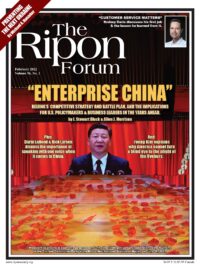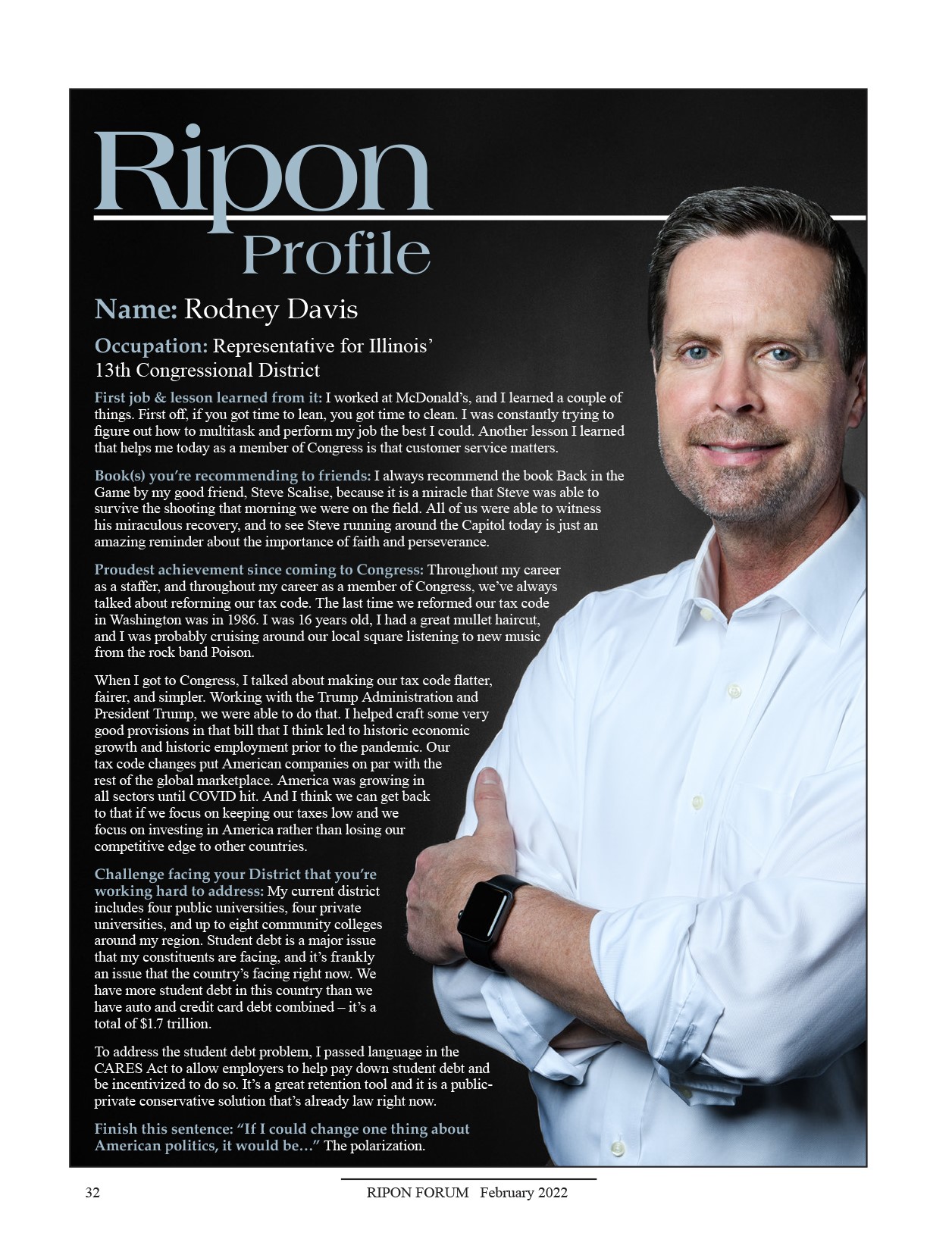Name: Rodney Davis
Occupation: Representative for Illinois’ 13th Congressional District
First job & lesson learned from it: I worked at McDonald’s and I learned a couple of things. First off, if you got time to lean, you got time to clean. I was constantly trying to figure out how to multitask and perform my job the best I could. Another lesson I learned that helps me today as a member of Congress is that customer service matters.
Book(s) you’re recommending to friends: I always recommend the book Back in the Game by my good friend, Steve Scalise, because it is a miracle that Steve was able to survive the shooting that morning we were on the field. All of us were able to witness his miraculous recovery, and to see Steve running around the Capitol today is just an amazing reminder about the importance of faith and perseverance.
Proudest achievement since coming to Congress: Throughout my career as a staffer, and throughout my career as a member of Congress, we’ve always talked about reforming our tax code. The last time we reformed our tax code in Washington was in 1986. I was 16 years old, I had a great mullet haircut, and I was probably cruising around our local square listening to new music from the rock band Poison.
When I got to Congress, I talked about making our tax code flatter, fairer, and simpler. Working with the Trump Administration and President Trump, we were able to do that. I helped craft some very good provisions in that bill that I think led to historic economic growth and historic employment prior to the pandemic. Our tax code changes put American companies on par with the rest of the global marketplace. America was growing in all sectors until COVID hit. And I think we can get back to that if we focus on keeping our taxes low and we focus on investing in America rather than losing our competitive edge to other countries.
Challenge facing your District that you’re working hard to address: My current district includes four public universities, four private universities, and up to eight community college districts touching my region. Student debt is a major issue that my constituents are facing, and it’s frankly an issue that the country’s facing right now. We have more student debt in this country than we have auto and credit card debt combined – it’s a total of $1.7 trillion. Instead of looking at realistic solutions, we have people out here in Washington like Bernie Sanders and Elizabeth Warren falsely promising young Americans, and in many cases those Americans who can at least afford to borrow more, that their debt is somehow going to be forgiven. That’s not going to happen.
So to address the student debt problem, I passed language in the CARES Act to allow employers to help pay down student debt and be incentivized to do so. It’s a great retention tool and it is a public-private conservative solution that’s already law right now. This is a benefit through the tax code. The employees that get this benefit don’t have to pay taxes on their employer’s student loan repayments on their behalf for up to the first $5,250 a year. This is how Republicans should solve problems in Washington.
Finish this sentence: “If I could change one thing about American politics, it would be…” The polarization.





